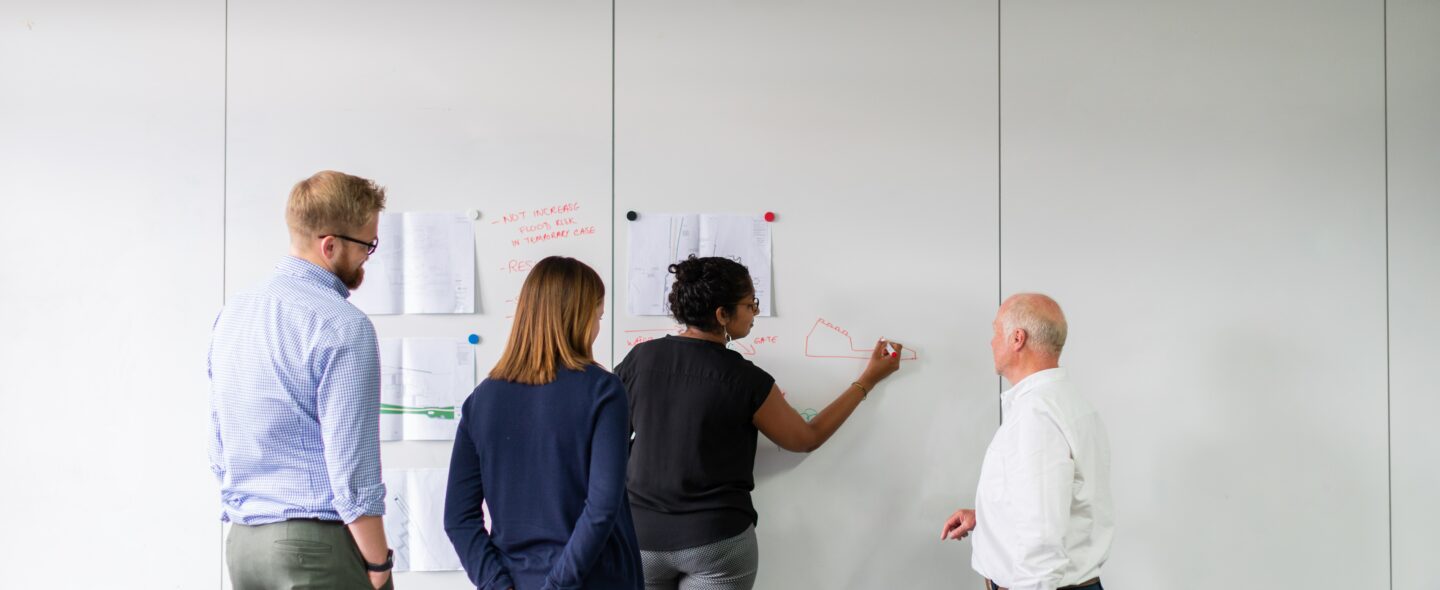Boston

Oriane Rütsche
January 19, 2023 | Boston & New York
Although Switzerland is repeatedly ranked as the world’s most innovative country, the size of its market remains relatively limited. Because it is crucial for Swiss startups to think globally from the get-go, the Swiss innovation agency Innosuisse launched startup camps that offer early-stage Swiss startups a first step into important foreign markets. In partnership with Swissnex, Innosuisse developed two types of internationalization camps:
In Boston and New York, Swissnex runs market validation and entry camps throughout the year. Each startup can choose between either Boston or New York as a camp location and agree with Swissnex on an appropriate start date. The startup then completes a program of one month (market validation) or three months (market entry), during which it benefits from tailored support from Swissnex. It also receives a stipend allowing it to visit the selected location during the chosen time frame. Prior to travel, every participant is required to attend the online introductory module “Breaking Into the US Market.” This module, which consists of virtual sessions of 1-3 hours per day over the course of two weeks, is offered twice a year. The spring 2023 edition will take place from March 6-17. The application deadline for startups interested in participating in the next module and traveling to Boston or New York is February 20, 2023.
Who Can Apply?
Startups that do not fulfill either of these criteria must first apply to Innosuisse’s Core Coaching.
What’s in the program?
Over the course of the internationalization camps, startups will get a deep dive into their chosen location. The online introductory module “Breaking Into the US Market” is designed to give all participants the essential tools and information they need to understand the US ecosystem before they arrive. During the two-week module, founders will participate in small group sessions with local experts, where they will gain valuable insight into US startup culture and learn how best to approach pitching, fundraising, business development, and hiring in the US Northeast. In addition, sessions will cover important legal topics, including IP, reimbursement, and taxation, as well as sector-specific topics, such as FDA product approval.
Meanwhile, Swissnex will work with each startup to develop a tailored market validation or entry program, including virtual meetings and travel to either Boston or New York. During their stay, startups will be able to use our Boston and New York offices as a home base while they build their local network and explore the ecosystem. Startups are encouraged to schedule their visits around relevant conferences or industry events in order to maximize the value of their travel. Participants will also have access to Swissnex’s network, as well as updates about relevant events and programs.
Why Boston?
Boston’s biotech and medtech industry needs no introduction–from the first published use of general anesthetic in 1846 to the development of mRNA vaccine technology in the 21st century, Boston has long been a hotspot of health innovation. As of 2021, Boston’s biotech industry was valued at $88 billion, accounting for 15.9% of global sector value, more than any other region. In 2022, Massachusetts-based biopharma companies received a total of $8.72 billion in venture capital funding, 25% of the national total. In addition to private funding, Massachusetts receives more research funding per capita from the National Institutes of Health (NIH) than any other state, and hosts three of the top five NIH-funded independent hospitals. Boston, together with nearby Cambridge, also leads its US competitors in lab space – 47 million sq. ft, with another 14 million under construction.
It may be most famous as a life sciences hub, but Boston’s innovation scene is much deeper than appears at first glance. With its close proximity to Harvard and MIT and their highly skilled talent pool, Boston is a natural fit for founders and investors interested in tackling big challenges, from cancer to climate change to the future of computing. The Engine, a venture capital firm spun off from MIT in 2016, is dedicated to supporting “Tough Tech” solutions that use new research findings to revolutionize the built environment, while nearby Greentown Labs is North America’s largest climatetech incubator.
Why New York?
While Boston’s innovation ecosystem is heavily weighted toward life sciences and B2B products, New York City’s innovation ecosystem is more diverse, offering both B2B and B2C products and services across all sectors. It’s also larger – the city hosts nearly 10,000 startups, more than France, Germany, Spain, and Italy together. The fastest growing ecosystem in the US, funding for NYC’s startups doubled between 2020 and 2021, reaching close to $60 billion. It consistently ranks second in lists of top global startup ecosystems and is closing the gap with San Francisco on many metrics. With 3.2 million professionals with college degrees, it’s the largest talent pool in the US, bigger than Los Angeles, San Francisco, Philadelphia, Washington, and Boston combined. New York is also a quintessentially global city, which is reflected in its startup ecosystem – it is the most co-invested ecosystem in the world, and 45% of its workforce is foreign-born. As a center of global finance, the NYC ecosystem is particularly strong in fintech, but it also excels in AI, big data, analytics, cybersecurity, and many other sectors. The city and state are also investing in expanding New York’s life science workforce and facilities. The ecosystem hosts numerous accelerators, from general programs such as Angelpad and Techstars to sector-specific programs such as FoodFutureCo, URBAN-X, and the New York Fashion Tech Lab.
Boston
Oriane Rütsche
New York
Josephine Erni

